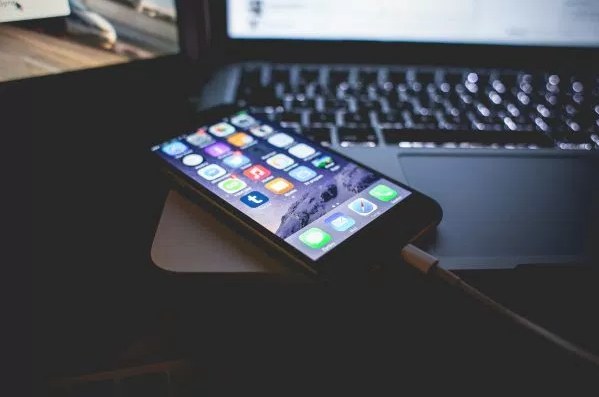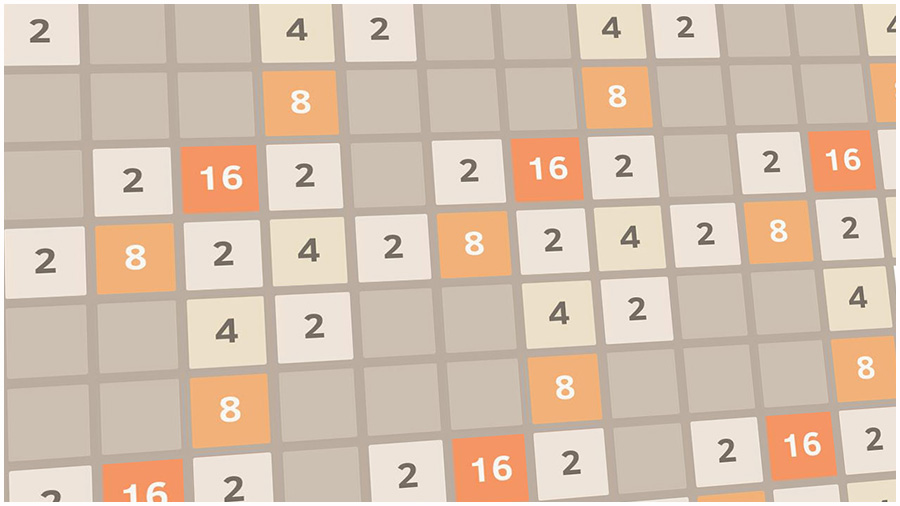Search result

These days, it isn't rare to take our mobile devices with us everywhere. Mobile phones and tablets have expanded their abilities at incredible rates. Now, the power under our fingertips is vaster than the technology that sent the Apollo missions to the moon. That is an incredible leap forward that, along with the Internet's global community has completely changed the way that humans interact and live.
The digital age has made people available 24/7, no matter where they are. People can communicate using cutting edge chat-apps that even 15 years ago would have required a powerful desktop PC (remember AOL?). Now, we can chat to someone in Indonesia from Seattle at the drop of the hat - and then be chatting to someone in Ukraine moments later - all while waiting for a train (thanks to 3G or public WiFi).
Digital Drawbacks & Technological Threats
Sadly, along with the ability and will to be connected, also comes some very serious drawbacks. Modern problems. Digital threats that in some ways make people more vulnerable than ever before in history. Being connected leaves a trail and these digital footprints code for who we are like digital DNA. The data we create is highly personal and for that reason that data is incredibly valuable and people must seek to protect it.
What we actually find is a decrease in the level of scrutiny we apply to our online presence. Facebook, Twitter, Instagram, Pinterest and the plethora of other social media platforms are all there for us to use, but that comes at a cost. We share our intimate moments. We share where we are, when we're away from home, when we're going on holiday, and often leave very easy breadcrumbs on exactly what we're doing, and when we're out, and where to find us. We share details that we wouldn't share with friends or family face to face, but saving them in a public forum is acceptable for millions of us. These posts, and images stay there forever. We think so little of our own private information that we give away lots of our information for free, without even thinking about it.
The inter-connectivity of devices also throws up additional concerns. We login to everything, on everything. Our phones have Facebook, our Facebook is used as a logon tool for many other services. We input our date of birth to gain access, our e-mails, our interests, likes, hobbies, names, friends, and more at an increasing rate. Our entire lives are online somewhere. Where people feel more at home with their mobile devices, we also login to our banks, and provide our financial information. The level of trust that we put into our devices, and the amount of digital data that we're inputting to those devices is increasing, drastically.
Governments, Internet Service Providers, advertisers, corporations, organizations, hackers, and cybercriminals, all want a piece of that pie. The technology has crept up on us quickly and only more recently have people come to accept that data should be considered a form of currency.
Whether it be to protect data from cybercriminals - or the government - the only way to be truly secure is for people to take control of their own digital footprints. Due to the value of personal data, everyone should make efforts to protect it. The sad truth is, that because that data is so valuable everyone is trying to get at it, but fewer are trying to protect it.
Personal cybersecurity
The first thing that people must realize is that mobile devices are just as vulnerable, if not more so, than PCs. In addition, the gap between Apple and Android has closed and now it is common to find malware for both. In fact, in some ways the Open Source nature of Android (as opposed to Apple's proprietary closed source environment) is allowing for encryption apps to pop up at a faster rate: things change.
These days, malware, viruses, spyware, and trojans all offer hackers methods for intercepting data - and their availability online to ‘script kiddies' means that cybercrime is at epidemic levels. The result is an elevated risk of fraud, loss of earnings - and perhaps worst of all - identity theft. For these reason, people need to take personal cybersecurity seriously and must seek to protect themselves and their devices. The most basic step is to make sure that the apps we install on our devices are secure, and that we always update them with the latest security patches and updates.
Third party and untrusted apps might be tempting, but the reality is that they could be malevolent. For this reason, people should to stick to trusted apps from known vendors and app stores. Even on official distributors such as Google Play Store it is possible to come across malicious apps.
For this reason people should take extreme care when downloading apps. Before you agree to install the app, check the permissions carefully. If the app wants access to things it doesn't really need then think twice before installing it. Why does a torch app want access to your GPS location and all of your contacts? If the requests don't seem reasonable simply don't download the app.
Remember that data is a currency, so if an app says it is ‘free' maybe you are actually paying with your data? In some cases, it might be worth paying a pound for a torch app that only requires access to the light on your phone, than to accept the free one that wants access to your entire device.
The Big Public WiFi Threat
Alongside smart devices, which allow us to be connected non-stop, in recent years there has been an explosion in the availability of public internet hotspots. Those hotspots provide high speed connectivity when people are out and about. The advantage of logging onto public connections is that people get to save their mobile data (if they have data limits).
What many people might not realize, however, is that public WiFi can be a security risk. When connected to public networks people's devices are vulnerable to having their data intercepted by another user that is logged onto the same router. This problem is the same on any WiFi - including shared home networks - so if you live in a big house where a lot of people regularly take the password from the router - you could also be at risk. The best solution for the problem is a VPN service.
A VPN service encrypts all the data between a phone, or tablet, and the VPN's servers. The result is that nobody on a public WiFi (or even on a fake hotspot controlled by a cybercriminal) can ‘sniff' the subscriber's data, as that data is encrypted.
The best VPNs provide strong military grade OpenVPN encryption, but many don't. With different levels of protection, and different services providing different benefits (and disadvantages), what you're specifically looking for can change the VPN service that you are looking for. Do you want faster speed, but are willing to accept a smaller number of geo locations, or do you need security at all costs, including speed and price? As such, it's important to do research about which VPN to use.
Other Levels of Protection
McAfee, Norton, AVG. At the launch of the internet, it's rare that individuals would have been desperate for anti-virus. There simply weren't as much malicious code flying around, but now, with an always-on internet antivirus is no longer seen as that "additional level of security that might sometimes help", or for those who delve more often into virus rife areas of the net. Now, things are different. It's rare for new computers, and new operating systems to not include some form of anti-virus, even for a month's trial while you set your computer up ensuring that you're not infected at this vital stage of life of your computer.
Not only is antivirus an integral part of your computer system, but firewalls are also included in the same package to help keep your computer safe. The problem arises that we're using our PCs, and our Laptops less and less, and using our mobile phones, and tablets more and more. There's a huge disconnect between the level of security on our larger devices, and our mobile phones, but we're still storing our intimate data on unprotected devices.
This could be a bit more understandable if protective services weren't easily available for mobile devices. Antivirus, firewalls, and password protection are just as available for devices, and the larger firms often provide multi-device deals, permitting several devices to be covered by the same services.
As well as more digital based protection, there's a large amount of physical ways to protect the data on our phones as well. Phone manufacturers are constantly in an evolutionary arms race with chancers who find new back-door entrances into devices. This has led to an increase in the amount of protection required to unlock a phone. Rather than just a pin, we now have patterns, passwords, swipe to unlock, fingerprint scans, google sign-ins. These simple methods help to keep that data secure from prying hands.
Our data, and our lives are much more mobile than they were before. Keeping up with that level of change is not only important: it's imperative.
The online mobile platform has brought with it a lot of advantages, one of its biggest ones being convenience. Since smartphones and tablets are small and not bulky, they can be carried around anywhere one goes without much hassle. An additional plus comes with their ability to access the wide web. The online realm allows access to numerous games that can be accessed with just the click of a button.
These games especially come in handy when waiting in long queues whether at the coffee shop, bus station or in offices. The indulgences can act as temporary distractions to pass the time as you wait to be attended. These indulgences can be casino games such as slots, table games, and live games, some of which can be found in the Phone Casino. Others can take on the playability of console games. The choice of indulgent to go for is dependent on the gamer's taste. Below is a look at 10 of the best games to play when waiting in a queue:
- Mega Joker Slot
- Temple Run
/cdn.vox-cdn.com/assets/1026998/unnamed.jpg)
Temple Run is among the most popular Android and iOS games on the online platform, and once the indulgent is launched, one can see why. The game is about a character that is on the run from a demon in a city located high above the sky. The game is available for free with a few in-game downloads. When the game hit the market, it became so popular that it called for the development of numerous sequels such as Temple Run 2, Temple Run Oz, Temple Run Brave, and numerous others. Knock-offs also arose. The game is available in download form and is easily playable using basic phone functions such as swiping left, right, up, and down, as well as tilting the playing device.
- Mobile roulette

Roulette is among the most popular casino games that transferred well to the online platform. This game does not require much skill and concentration to play, which makes it great to play while in a queue. European roulette stands as the most popular variation of the game and can be played for free or real money in numerous gambling destinations found online.
- Candy Crush
This products by King.com is among the most popular sets online that triggered the production of numerous sequels and knock-offs. The game consists of various colored candy that is arranged in a rectangular grid. The player is presented with various challenges that involve matching at least three similar items within a limited number of moves. The number of times one can lose consecutively is also limited to five times.
- Blood Suckers
The massive following this slot machine game by Net Entertainment comes as no surprise thanks to the presence of a ninety-eight percent Return to Player rate and a beautiful presentation that uses killer graphics and easy gameplay. Gamblers are advised to wager the highest possible amount to ensure the RTP rate is maintained at an all-time high. The highest winning stands at ninety thousand coins in the base game, and thirty thousand coins in the freebies feature.
- 1024

1024 is a simple game that is placed on a four by four grid with a few numbers placed in it. The gambler is tasked with matching the smaller numbers on the grid to form bigger numbers. However, this should be accomplished without letting the grid fill up. Once it does, the game ends. The numbers can go up to one thousand and twenty-four or even higher if the gamer is up for the challenge.
- Rooftop Runner

This indulgent is similar to Temple Run with the feature of an endless runner. This time, however, gameplay is situated at the top of buildings. The further a player runs, the faster the game becomes making it more challenging, but remaining simple enough to play at any time.
- Compulsive
This is one of the most straightforward yet most addictive games on the wide web. The gameplay simply involves matching tiles that bear the same color to gain points. Compulsive features various levels that get harder as gameplay progresses.
- Flappy bird

Flappy bird caused an online craze when it was released, and it hasn't died down up until now. The game can be found in numerous knock-offs such as Flappy Crocodile, Flapthulhu, Flappy Alien, and many more. The game simply involves getting the flappy element through various obstacles by tapping the screen.
- Kings of Chicago
This slot game by Net Entertainment is based on Chicago in the 1920s with numerous elements of pretty women and jazz music. Players have a chance at a maximum pay of twenty thousand coins in this ninety-seven percent RTP rate game.
Some of these games mentioned above can be played for real money while others involve only fun. However, some of them that are for free play, such as Candy Crush, may have some in-game purchases that require the gamer to spend some cash.
© 2023 YouMobile Inc. All rights reserved






